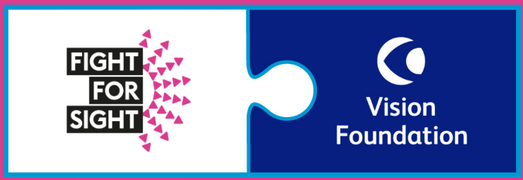 Jessikah Inaba, from Camden, North London has shattered the “triple-glazed glass ceiling” by becoming the first black and blind barrister in Britain. The 23-year-old qualified last week after studying for five years at the University of Law in London, completing her entire course using Braille.
Jessikah Inaba, from Camden, North London has shattered the “triple-glazed glass ceiling” by becoming the first black and blind barrister in Britain. The 23-year-old qualified last week after studying for five years at the University of Law in London, completing her entire course using Braille.
“I always believed in myself from the start – there’s nothing about me which means this isn’t possible.”
“It’s been crazy – I still can’t really believe I’ve done it. One day I’ll wake up and realise how amazing this is. It was hard and I often thought of giving up, but my supportive family gave me courage and strength… I know I can do this job really well, and the more people like me who go through training the easier it will become.”
Jessikah began her accelerated law degree in September 2017 and, two years later, took on a master’s degree alongside a professional development course. As a Braille user, Jessikah required accessible course materials to study. It took her university five months to get one of her two essential study materials in an accessible format and seven months to get the other.
 Even with these materials, Jessikah couldn’t access chunks of important information due to the books’ photos and tables not being transcribed properly. According to Jessikah, she completed the majority of her undergraduate coursework by creating her own braille notes, transcribing her lectures and enlisting the help of friends to read with her.
Even with these materials, Jessikah couldn’t access chunks of important information due to the books’ photos and tables not being transcribed properly. According to Jessikah, she completed the majority of her undergraduate coursework by creating her own braille notes, transcribing her lectures and enlisting the help of friends to read with her.
Jessikah said: “I was spending more time preparing my own learning materials than I was studying… I was hospitalised because I kept fainting in October 2019 because I’d been functioning on about three hours sleep a night for two years. I would sometimes get 45 minutes a day to eat, but often I ate while at my computer.”
“The university had other visually impaired people who used text to speech, but I just can’t work like that. I need to read it physically for myself or I can’t remember it. Everyone is different and has a different work around for various situations.
A lot of people registered blind have some vision, so they can sometimes use large print, or some blind people manage well just by listening to text. Braille is expensive to produce because you need a lot of special software and equipment.
Despite facing inaccessible systems, Jessikah broke through these barriers and plans to apply for a pupillage when applications open in January.
“I know I’m giving hope to others in similar situations. There’s a triple-glazed glass ceiling. I’m not the most common gender or colour, and I have a disability, but by pushing through I’m easing the burden on the next person like me.”
 When reflecting on her experience, she said: “I’m very proud but I do wish it had all gone smoothly… I feel because of disabled access problems my results aren’t a true reflection of my ability. I reckon as a black person I have to work ten times harder than others just to be accepted by society.
When reflecting on her experience, she said: “I’m very proud but I do wish it had all gone smoothly… I feel because of disabled access problems my results aren’t a true reflection of my ability. I reckon as a black person I have to work ten times harder than others just to be accepted by society.
Before I can see a client I have to prove I’m a lawyer and justify my need for my specialist equipment. If I was an older white man who can see my professional life would be so much easier. I have to accept I might never be competing on a level playing field – that’s hard.”
“People from minority groups training to do this will face discrimination, hopefully that will get easier with time. If it happens don’t be too shocked, just carry on following your dreams – you’ll get there.”

